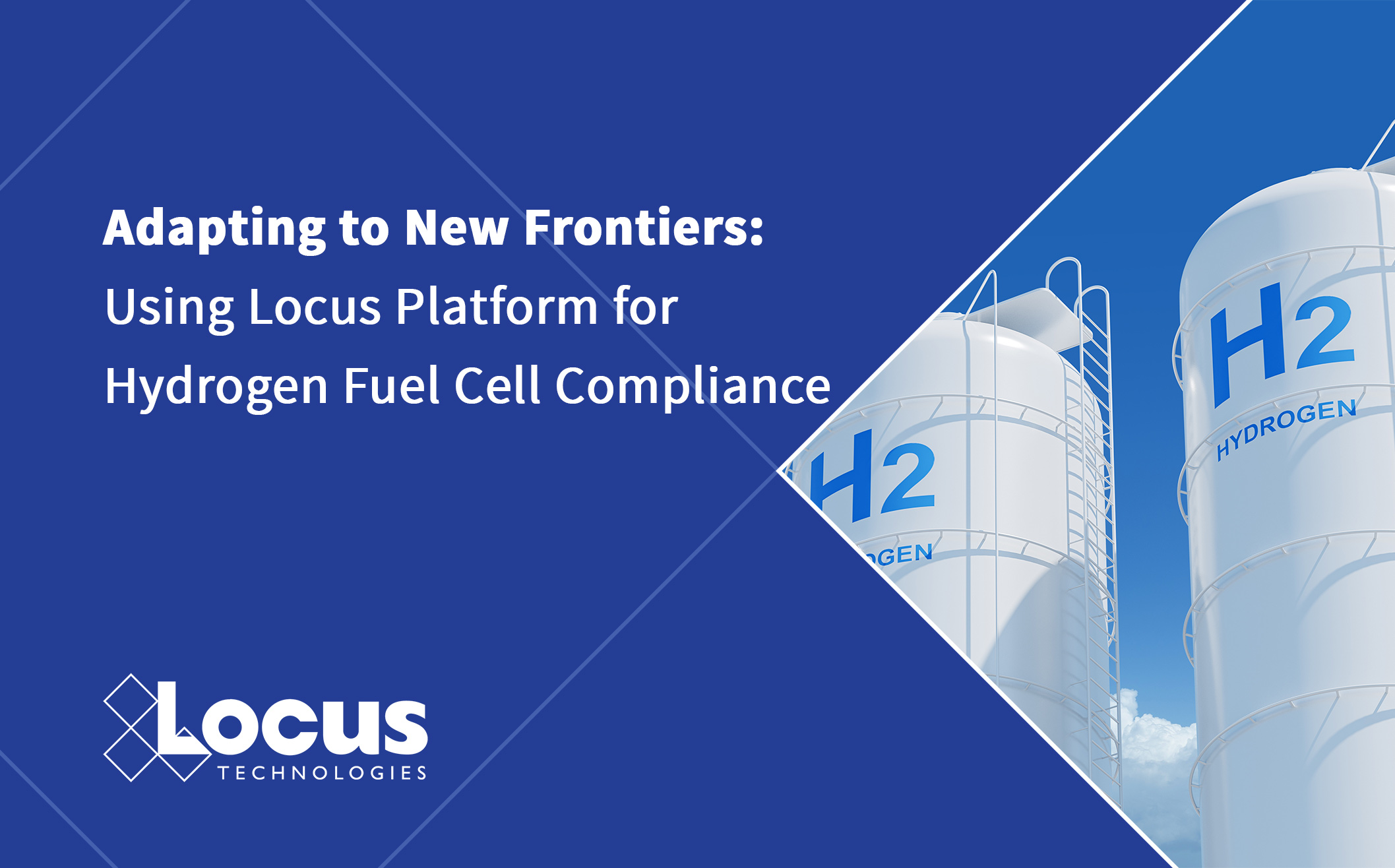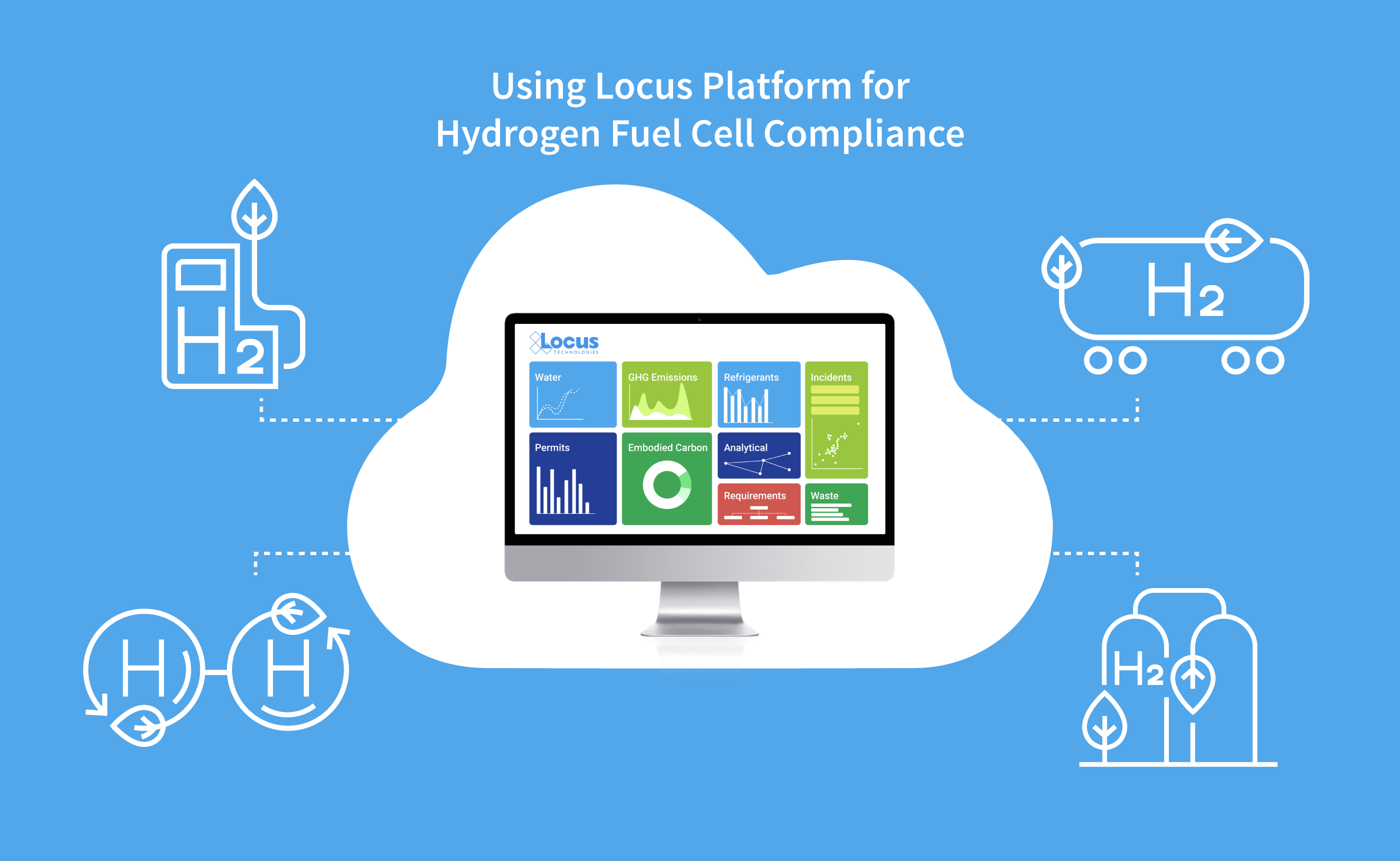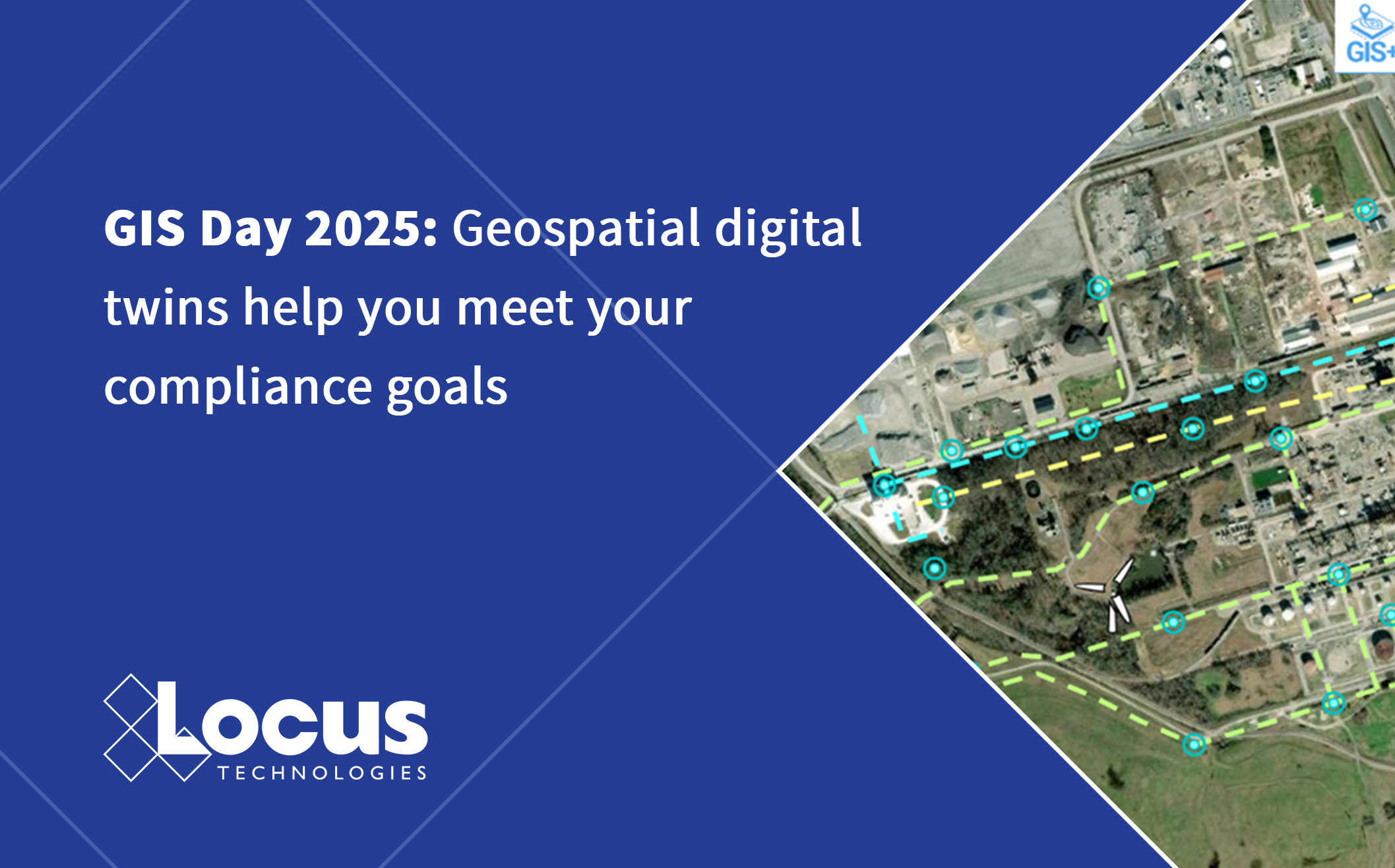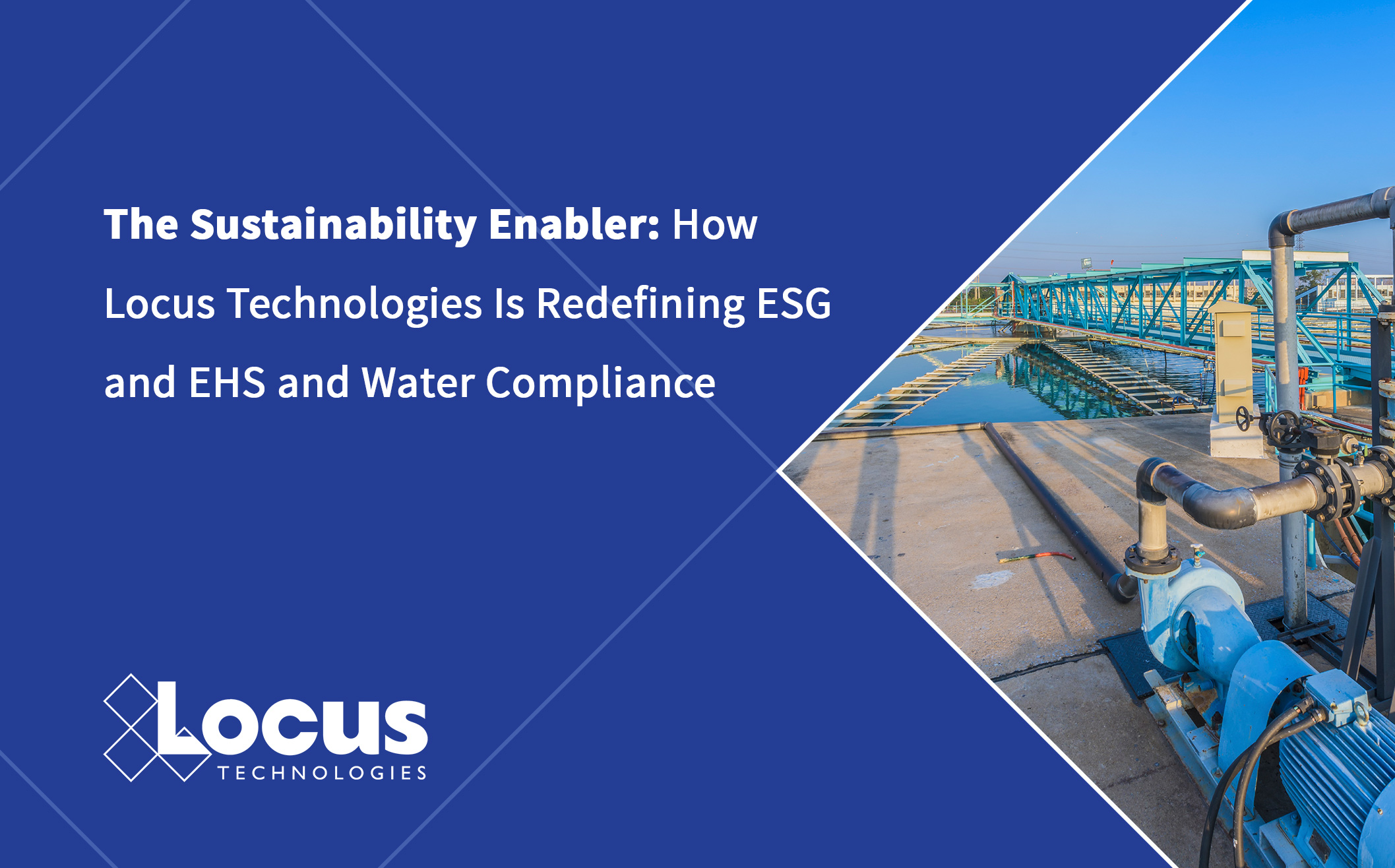Adapting to New Frontiers: Using Locus Platform for Hydrogen Fuel Cell Compliance
By Staff Writer

Reading Time: 4 minutes
As the clean energy transition accelerates, hydrogen has emerged as one of the most promising (and complex) technologies to regulate. Its role in transportation, industrial processes, and distributed power brings together a web of overlapping standards, safety requirements, and certification schemes that few industries have encountered before.
Managing hydrogen fuel-cell compliance requires navigating a matrix of safety, environmental, and quality frameworks: from NFPA 2 Hydrogen Technologies Code for safety, to ISO 14687 for fuel purity, to vehicle and transport regulations like SAE J2579 and UN-ECE rules, and the emerging GHG certification frameworks such as the EU’s Delegated Acts and CertifHy system.
For many organizations, these obligations are too specialized for off-the-shelf compliance tools. But with the configurability and flexibility of Locus Platform, it’s entirely feasible to build a targeted compliance solution tailored to the hydrogen fuel-cell value chain.
The Challenge: Managing a New Class of Compliance Data
Hydrogen fuel-cell projects often sit at the intersection of environmental permitting, process safety, product quality, and ESG reporting. Teams must manage:
- Permits and plan reviews referencing NFPA and ISO standards.
- Fuel-quality testing and chain-of-custody documentation.
- Inspection and maintenance records for high-pressure vessels and piping.
- Leak-detection, calibration, and incident tracking data.
- GHG and product certification claims for renewable hydrogen under EU or U.S. frameworks.
Because no mainstream software exists dedicated solely to this regulatory mix, organizations often piece together spreadsheets, generic EHS systems, or manual processes—none of which scale well or provide traceability.
A Configurable Platform Approach
Instead of waiting for a market-specific product, one Locus customer envisioned a solution built directly on the unified Locus Platform — a highly configurable, metadata-driven environment already used across industries for EHS compliance, ESG reporting, and water data management.
The circumstance demonstrates how quickly a specialized application could be configured using Locus’s existing capabilities, including:
- Permit management and regulatory registers to track NFPA, ISO, and regional hydrogen standards.
- Inspection workflows with automated reminders for pressure-vessel testing and safety checks.
- Laboratory data ingestion (EDD interface) for fuel-quality verification.
- Incident logging and corrective actions to meet OSHA or NFPA reporting expectations.
- Certificate management for storing and validating low-carbon hydrogen credentials.
Each element can leverage standard components within the platform, such as forms, workflows, and dashboards, that can be configured without code or custom development.
Harnessing Core Platform Strengths
The power of the Locus Platform lies in its architecture. Because it is cloud-native and multitenant, every new application inherits the same enterprise-grade security, scalability, and performance used by thousands of global users managing environmental data.
Its unified data model ensures that hydrogen-related information like permits, lab results, and inspection records exists alongside air, water, waste, and ESG data. That shared structure allows teams to link hydrogen compliance metrics to broader sustainability goals or Scope 1 and 2 GHG disclosures.
In short: users enter data once, validate it once, and can then report it to multiple frameworks, whether it’s a Title V permit update, an ISO compliance audit, or an ESG disclosure.
Adaptability in Action
The flexibility of Locus Platform’s metadata-driven configuration is key. Authorized users could adjust terminology, update forms, or build new workflows as hydrogen regulations evolve; no developer intervention required.
For instance, when the EU introduced new Delegated Acts defining how renewable hydrogen is certified, the compliance manager could quickly add new data fields and logic for GHG intensity calculations within Locus Platform. The workflow could automatically route certificates for review, ensuring complete traceability for auditors.
This adaptability and being able to evolve the system in hours rather than months, is what makes the Locus Platform uniquely suited to emerging sectors like hydrogen.
Integrations and Data Intelligence
Using Locus’s API connectors, data from SCADA systems, IoT pressure sensors, and laboratory instruments could flow directly into the platform. This integration reduced manual entry, improved accuracy, and provided near real-time monitoring of operational parameters.
Locus Platform’s AI-powered analytics and visualization tools further enhanced situational awareness. Dashboards displayed trends in gas purity, inspection compliance, and sensor alerts. Predictive models could even forecast where maintenance issues or deviations might occur — turning raw compliance data into actionable intelligence.
From Niche Need to Broader Lesson
Whether managing hydrogen, carbon capture, or another emerging clean technology, organizations face a recurring problem: regulation always evolves faster than software markets. By the time a specialized tool exists, early adopters have already needed to comply.
Locus Platform’s design directly addresses that gap. Its configurable framework, unified data structure, and AI-ready architecture enable companies to stay ahead of new compliance landscapes, without waiting for the market to catch up.
In the hydrogen example, what began as a niche challenge to track safety codes, fuel quality, and certification data became a demonstration of Locus Platform’s true adaptability. By combining existing Locus modules in innovative ways, the customer could create a comprehensive compliance tool tailored to one of the most technically demanding new energy sectors.
Looking Forward
Hydrogen’s rapid commercialization underscores the importance of future-proof environmental data and compliance systems. Regulators and investors alike are demanding transparent, auditable evidence for safety, quality, and carbon-intensity claims. As new codes and standards continue to emerge, companies need digital infrastructure that evolves with them.
The Locus Platform provides exactly that:
- A unified, multitenant foundation for all environmental and sustainability data.
- Metadata-driven configurability that adapts to any framework or jurisdiction.
- AI and automation tools that turn compliance records into strategic insight.
Hydrogen fuel-cell compliance may be an emerging niche, but it perfectly illustrates why adaptability is now a core requirement for digital EHS and ESG systems. In a world where regulations evolve faster than products, Locus gives organizations the power to build the future themselves … securely, intelligently, and at scale.

Locus is the only self-funded water, air, soil, biological, energy, and waste EHS software company that is still owned and managed by its founder. The brightest minds in environmental science, embodied carbon, CO2 emissions, refrigerants, and PFAS hang their hats at Locus, and they’ve helped us to become a market leader in EHS software. Every client-facing employee at Locus has an advanced degree in science or professional EHS experience, and they incubate new ideas every day – such as how machine learning, AI, blockchain, and the Internet of Things will up the ante for EHS software, ESG, and sustainability.



